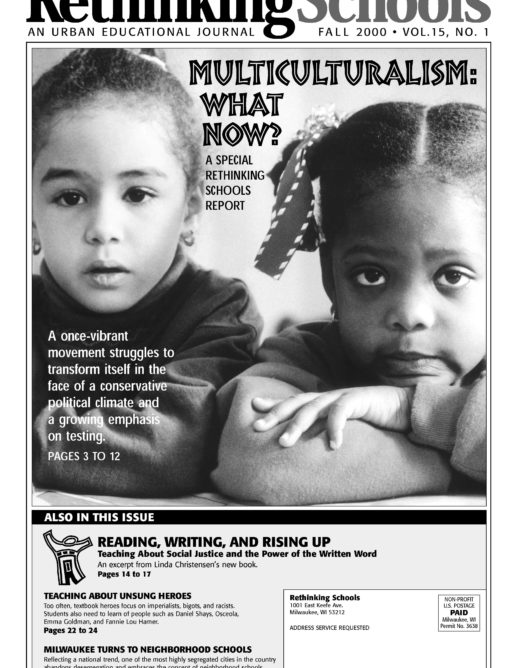Preview of Article:
Creating A Vision of Possibility
How student writing can nurture reflection and hope.
For many students, there is no culture of college in the home.While most parents want their children to go to college, if theyhaven’t gone themselves they might not know how to help theirchildren prepare or apply. My student, Trisa, articulated thisafter we visited a more affluent high school in the suburbs. Oneof her “ahas” about the difference between our schools was summedup in her quote, “At West Linn, students didn’t ask each otherif they were attending college, they asked each other where theywere going. Attending college was a given.” In homes where noone has gone to college, the difference between if and where isa big one.
My mother supported my entrance into college, but we didn’t havea clue how much money it really cost or how to apply. Mom hadnever set foot on a college campus, but she’d harbored the dreamof becoming a teacher when she was younger. Either we didn’t havecollege counseling in my high school or I wasn’t perceived tobe college “material,” because no one at Eureka High helped methink about where I might want to attend. I did apply to severalUniversity of California campuses because I’d visited a friend’ssister at Berkeley, and I pumped her for information. The Universityof California at Santa Barbara accepted me, but after the burningof the Bank of America in nearby Isla Vista and campus riots in’69, Mom thought Redwood Community College would be a better choice.Her thinking was, “A college is a college.” My students struggledwith similar problems. The choices overwhelmed them, and eventhe application fees seemed excessive.
One of my students who was the first member of her family to attendcollege said, “I don’t know what changed for me this year. NowI get good grades. I want to do my work. I stay for academic clinic.I get my homework done.” But I knew what had changed. One dayduring the previous summer while Natalie and her parents visitedfamily in Seattle, her father drove her to the University of Washington,a beautiful campus. They ate lunch, toured the campus, and hespoke of his desire for her to attend a four-year college. Throughthat visit, Natalie’s father helped her see college as a possibility.
RESISTANCE: IS COLLEGE THE ONLY OPTION?
Let me set the record straight: I don’t think college is the onlyoption for students. But most students will need post-secondaryeducation to get a living wage job. A significant number of mystudents lacked the credits to be juniors or seniors when theyentered my untracked classes; so when I started in on college,they rebelled. Justifiably so. They were sick of school, and theydidn’t want to study for the SATs or write college essays. ButI believe it is essential to give students a vision of their livesafter high school; in fact, it was crucial to their success inmy class that they established an attainable goal and directionfor their life after Jefferson. Without that vision and goal,it was too easy to sleep in, watch daytime soaps, and forget abouthomework.
How I talked with students about their future was crucial. Onone occasion I spoke with my class about college and I inadvertentlyput down working-class jobs, “You don’t want to push a broom orpump gas the rest of your life. That might be okay when you’reyoung, but you don’t want to make a career out of it.”</p

